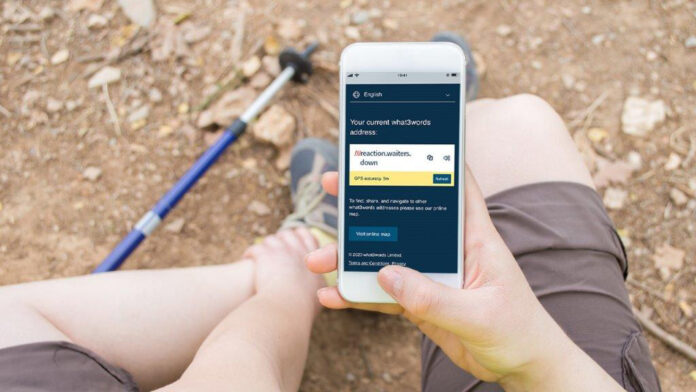
Parkland Ambulance is encouraging members of the public to download an app that will help emergency services find them with just three words.
What3words has broken the entire world into squares measuring three metres by three metres. Each of those squares has been given a unique three word identifier. All someone has to do is give those three words to the dispatcher and they’ll be able to identify which 3 m square they’re located at.
Parkland Ambulance announced its use of the app during Paramedic Services Week. The theme of the 2021 celebration of paramedics is “citizen ready.
“What better way to get our citizens ready and talk about ways that they can be found faster than to use something as simple as What3Words?” said director of public affairs Lyle Karasiuk.
“By giving those three words to our telecommunications team, that they know where you are. And we’ve already had some successes with it.”
Once someone relays the three words to the telecommunications team, they can put the words into their system and get a precise location. That location is then also entered by the ambulance teams, who are led right to where a caller is located.
The app’s website points out that even street addresses can be unspecific. What3Words can be used to identify the exact 3 metre square where a front door, for instance, is located.
Parkland Ambulance has used the app at least twice so far successfully.
“A person that was in a vehicle out on one of the major highways north of Prince Albert, weren’t sure exactly where they were,” said director of communications Brian Reichle.
“We sent them the What3words link, and they logged in, gave us the three words, and we found out exactly where they were, which was not near where they thought they were.”
He said it was also used in a second incident in a rural area, where different callers reporting a rollover all identified different locations. Using What3words, crews were able to resolve the confusion and identify exactly where the rollover was.
“There are a lot of people who drive through the area who aren’t from here and don’t know exactly where they are,” Reichle said.
“If you tell emergency servers to go 15 miles east when you should be going 15 miles west, that can play in a lot of time factor in there that can be detrimental to the patient.”
Karasiuk said the app isn’t intended for use to find the address of a home or business, as 911 can locate landlines, for example, to give first responders an exact location.
It could be useful, he said, in the winter when people get hurt while snowmobiling or skiing and need help urgently.
“Maybe you’re out biking on the rotary trail, maybe you’ve gone somewhere in rural Prince Albert out on the quad, and you’re out for a ride with family and friends. All of these have the potential to be injury happening incidents. We don’t want that to happen. But we need to find you, we need to send help to you and you don’t necessarily know where you are. What3words will get you there,” he said.
“When it’s warm and sunny out, it’s not a big problem. But you look at somebody on a snow machine in the winter, a cross country skier who’s had an injury on the trails, maybe in the Little Red River Park, those can be quite horrific injuries, especially in cold. And then the type of injuries certainly dictates the need for necessity of getting someone there as quickly as possible.”
Karasiuk said the app is easy to use for both people in need of help and for responders. When you call in for help, he said, you would say you have the app and just give the three words.
You can find your location online at https://what3words.com or by downloading the app on Google Play or the Apple app store.

